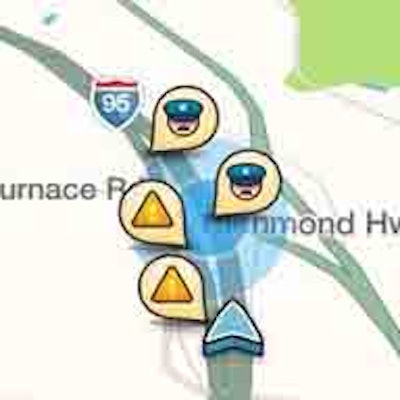
 Startup Waze Mobile, acquired by Google in 2013, is drawing major criticism from U.S. sheriffs and other law enforcement officials.
Startup Waze Mobile, acquired by Google in 2013, is drawing major criticism from U.S. sheriffs and other law enforcement officials.
The Waze app is a community-driven GPS that gathers data from users to report on traffic jams, accidents, speed traps, cheap gas, etc. in order to constantly update people on driving conditions. It has all the convenient features of other mobile map services, but it uses crowdsourcing to update continuously.
Los Angeles Police Chief Charlie Beck sent a letter to Google in December 2014, claiming that the feature helping drivers avoid police could be used to endanger police and other members of the community. The effort has broadened as the National Sheriff’s Association released a new statement saying the Google software hampers speed traps and radar guns, law enforcement techniques that have improved highway safety.
This recent statement is part of an ongoing campaign against Waze, in which some law enforcement officials have called for Google to disable the police-spotting feature of the app.
Eileen Sullivan of The Associated Press writes, “Waze actually gained popularity in the last week since The Associated Press first disclosed law enforcement's concerns, climbing four positions to No. 8 on Apple's ranking of the top free mobile apps.”
Police are concerned not only for the app user’s new ability to speed more smartly, but also for the potential danger of allowing the community to monitor and watch the police instead of the other way around. Sullivan writes, “The National Sheriffs' Association had previously focused its campaign against Waze on police safety after the fatal shootings of two New York police officers in December.” There are no known connections between the event and the app, but some worry about future attacks.
The new controversy is also complicating some pre-existing tension between police and the communities they serve. Sullivan writes, “Police objections to Waze add new complexity to the debate about technology and privacy. Some Waze supporters lashed out at outspoken sheriffs on social media, pointing to the irony of police concerns about being watched amid sensational disclosures about police and government surveillance of citizens.”
Should the Waze app be disabled? If so, will First Amendment protections stand in the way? Is the app just another opportunity for distracted drivers to engage with their mobile device? Comment below.






















